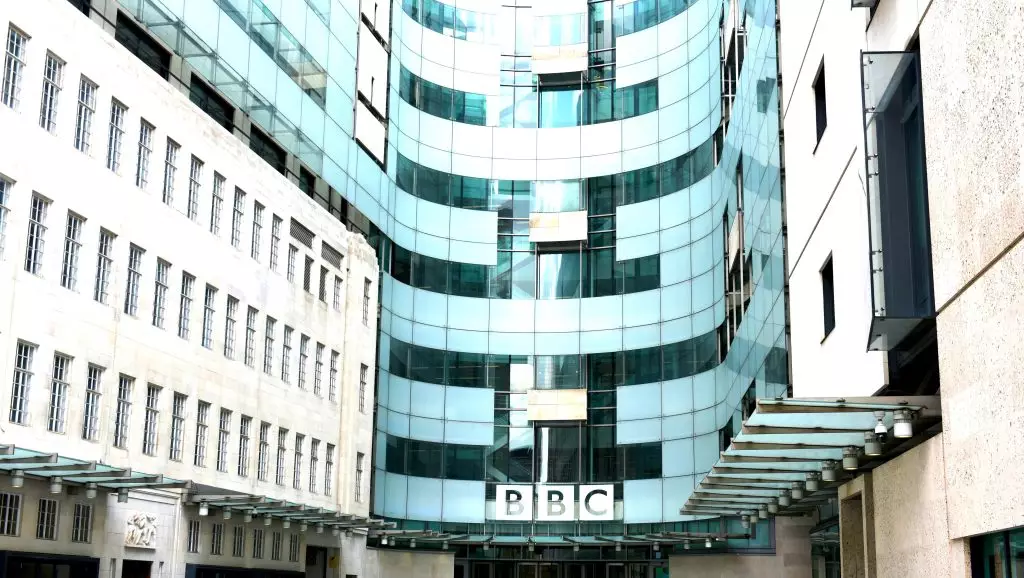Recent revelations have unveiled a troubling reality behind the esteemed reputation of the BBC: employees have retained their positions despite upheld sexual harassment complaints. According to a recent report, which drew attention through a Freedom of Information Act request, the BBC upheld five formal sexual harassment grievances in just three years leading up to March 2024, with an additional case only partially upheld. Yet, alarmingly, only one individual faced termination for their actions. This raises fundamental questions about the integrity of the corporation’s commitment to its stated policy of “zero tolerance” towards harassment.
What is perhaps even more unsettling is the broader context of bullying and harassment within the organization. In this same time period, a total of 39 complaints—encompassing bullying, harassment, and sexual harassment—were upheld or partially upheld. However, merely 13 individuals faced any form of disciplinary action, and yet again, only one employee was dismissed. This stark statistic suggests that nearly two-thirds of the time, perpetrators of inappropriate conduct escape accountability, undermining efforts to foster a safe work environment.
Diminished Trust Among Employees
The implications of these findings are profound. Trust in the BBC’s complaint mechanisms has waned, with recent staff surveys indicating that only 58% of employees believe their concerns regarding bullying or harassment will be addressed appropriately. This marked a six-percentage-point slump from the previous year, representing the lowest confidence level since 2019. A work culture that should nurture trust and transparency is instead eroding, creating an environment where employees might feel dissuaded from reporting misconduct.
The contradiction between the BBC’s public assurances and internal realities is glaring. Director General Tim Davie and Chair Samir Shah have publicly stated that employees crossing professional boundaries should be removed from their positions. While they insist that no one is “indispensable,” the disciplinary outcomes paint a different story. The reality that the BBC’s disciplinary decisions are often left to the discretion of management raises questions about consistency, fairness, and transparency in how cases are handled.
The Disciplinary Response: A Nuanced Approach?
BBC management has claimed that all complaints are taken seriously, yet their stance on disciplinary action appears to be surface-level at best. They argue that punishments are tailored to the nuances of each case and may include a range of sanctions from written warnings to demotions or training sessions. This “case-by-case” approach, while seemingly reasonable, can dilute the genuine severity of misconduct and send a message that consequences for inappropriate behavior are not always definitive.
The BBC has adopted a strategy where punitive actions may be replaced with less severe interventions like mediation and coaching. Given the gravity of many offenses, such measures may seem insufficient and inappropriate. By prioritizing remediation over accountability, there is a risk that the BBC will perpetuate a culture where the very foundation of trust and respect is compromised.
Contextualizing the Data: A Culture in Crisis
The timing of these findings coincides with a wider scrutiny of workplace culture at the BBC, especially following scandals involving high-profile figures like Russell Brand and Huw Edwards. As the BBC confronts the ramifications of these events, the upcoming workplace culture review takes on heightened significance. The last major evaluation was conducted in 2013, and the current environment is crying out for serious introspection and change.
Yet, the statistics are sobering. Over the last decade, there have been 41 formal sexual harassment cases reported—an average of four cases per year. Furthermore, the organization has handled a staggering 604 bullying and harassment claims, translating to an average of 55 per year. These numbers highlight a culture ripe with issues that are not only systemic but deeply entrenched.
Adding to the shock is the unacceptable delay in resolving grievance processes. An average of 83 days to resolve complaints significantly exceeds the 30-day target established in the 2013 review, showcasing inefficacies that hinder both justice and employee wellbeing.
Addressing the Elephant in the Room
The BBC’s public stance on culture and conduct must align with the realities experienced by its employees. If the organization truly aspires to cultivate a safe and respectful workplace, it cannot afford to overlook the gravity of harassment and bullying complaints. By consistently failing to hold wrongdoers accountable, the BBC not only undermines its credibility but risks damaging the psychological safety of its workforce.
Ultimately, it is imperative for the BBC to confront these realities with urgency and sincerity. Ignoring the issues or masking them with vague policies won’t suffice; the time for decisive action is now. The BBC must not only talk about zero tolerance—it must embody it. The path ahead demands a cultural metamorphosis where trust is rebuilt and true accountability becomes the norm, rather than the exception.

